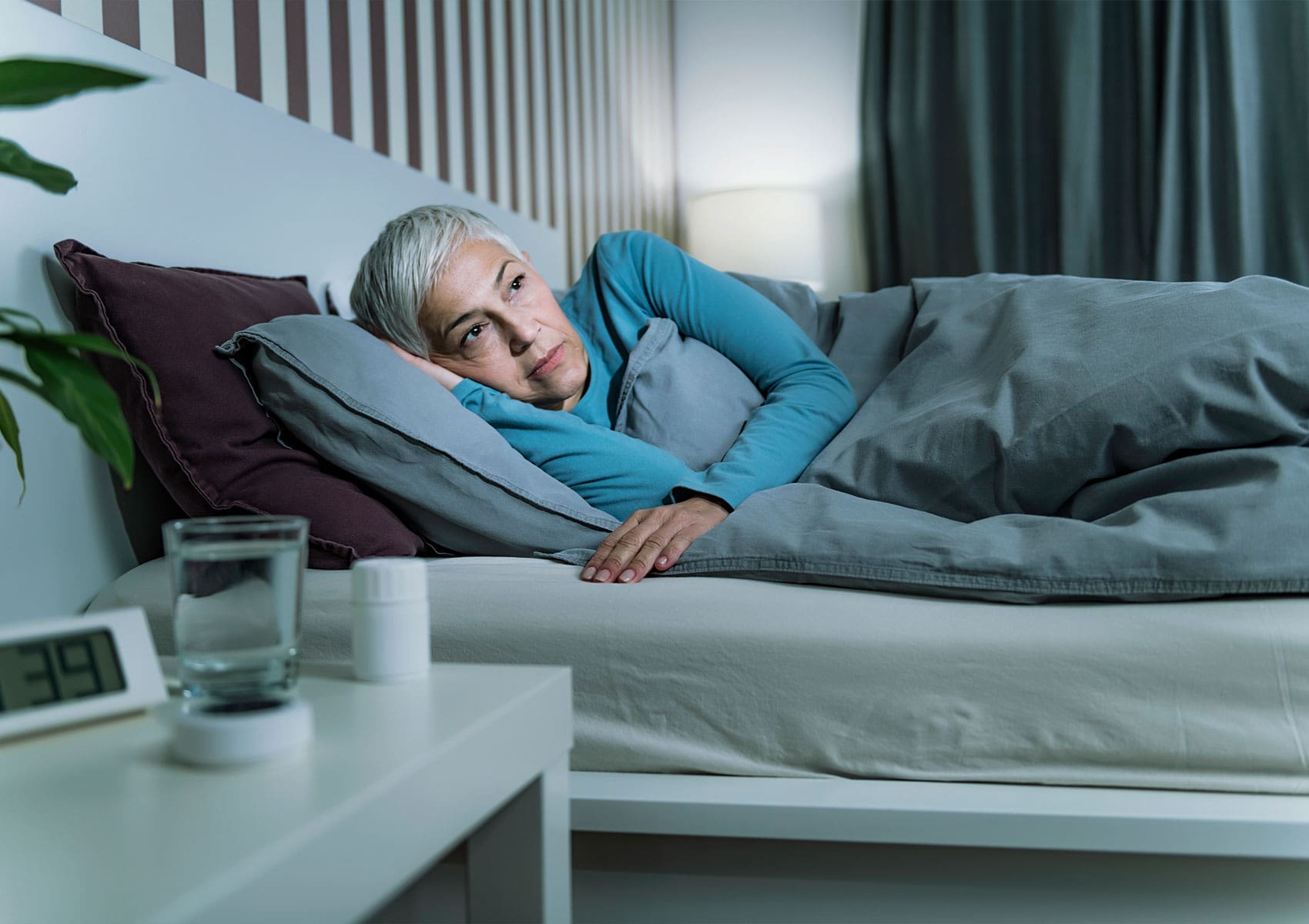Circadian Rhythm Sleep Disorder describes a category of sleep problems in which the primary factor is the timing of sleep and wake cycles. A person with a circadian rhythm disorder may have difficulty sleeping at a time they need to sleep, difficulty rising when the need to rise, and difficulty maintaining alertness when they need to be awake.

Symptoms Of Circadian Rhythm Sleep Disorders
Human beings are programmed to be awake and to be asleep for certain periods of time. While you may categorize yourself as a “morning person,” “night person,” or even a “night owl,” based on when you find yourself most alert, your body seeks a sleep/wake homeostasis based on your biological clock or circadian rhythm. Your need for sleep and wakefulness should be balanced out throughout the day, even though you may feel more alert at certain times.
If you have a circadian rhythm sleep disorder, you may not be able to sleep or remain awake and alert at the proper times. Many scheduling aspects of modern life are based on being awake when it is light outside and asleep at nightfall. Your body clock uses light and darkness as “zietgebers” or cues that are communicated to the brain and then synchronize it with the 24-hour day. Additional factors, such as exercise, eating, genetics, hormones, illness or bodily conditions also serve as cues to influences your body clock.
Causes of Circadian Rhythm Sleep Disorders
Circadian rhythm sleep disorders are triggered by multiple factors, but some of the major factors include:
- Shift work
- Jet lag
- Physical or mental health problems
- Medication
- Pregnancy
- Growth spurts in teenagers
Changes in your schedule or routine can also trigger circadian rhythm sleep disorders. Some factors are schedules that require:
- Early rising
- Staying up late
- Sleeping in
Types of Common Circadian Rhythm Sleep Disorders
Jet Lag Or Rapid Time Change Syndrome results from traveling across time zones. Your body can process the time change over a couple of days, but frequent business travelers and airline personnel may have trouble staying alert.
Delayed Sleep Phase Disorder results in a delay in falling asleep and delayed waking, which is often out of sync with demands of work and school. Common in adolescents and young adults, it may lead to the inability to fall asleep until the middle of the night and the need to sleep until late in the day, which proposes a problem with work and school schedules.
Advanced Sleep Phase Disorder prevents a person from staying awake during appropriate times and keeps them from sleeping at night. Often found in older adults, this may mean falling asleep in the afternoon or evening, having difficulty sleeping at night, and rising early
Non-24 Hour Sleep Wake Disorder that results in reduced sleep time, impeded sleep quality at night, and leads to sleepiness during the day. This disorder may impact those who are partially or completely blind.
Why Seek Help For Circadian Rhythm Sleep Disorders
For most people, it’s an advantage to have your internal body clock correspond to the schedule that the rest of the world follows. For those affected with circadian rhythm sleep disorders, the real problem is the inability to perform well when needed. A doctor who operates at 3 am must be as alert as one performing surgery at 10 am. Recent studies have even linked poor sleeping habits with Alzheimer’s disease. The goal of treatment for circadian rhythm sleep disorders is to adjust your sleep pattern to your schedule so that you get the rest you need.
Treating Sleep Disorders
Treating circadian rhythm sleep disorders starts with an evaluation and behavioral assessment by a sleep specialist at the Center for Sleep Medicine. Once your sleep specialist identifies the mix of behavioral, cognitive, and physiological factors involved your specific sleep disorder, it is possible to develop a treatment plan.
While your plan is individualized to your needs, common approaches include:
- Bright Light Therapy that uses exposure to artificial light to help change your body clock
- Chronotherapy, a behavioral technique that systematically changes your bedtime to get your body on track
- Melatonin, a supplement that can help prevent jet lag
- Sleeping aids, including prescription drugs
- Lifestyle changes and behavioral therapy that incorporate exercise and better eating habits and can positively impact the circadian pattern
The approach is individualized depending on the demands of your life.
